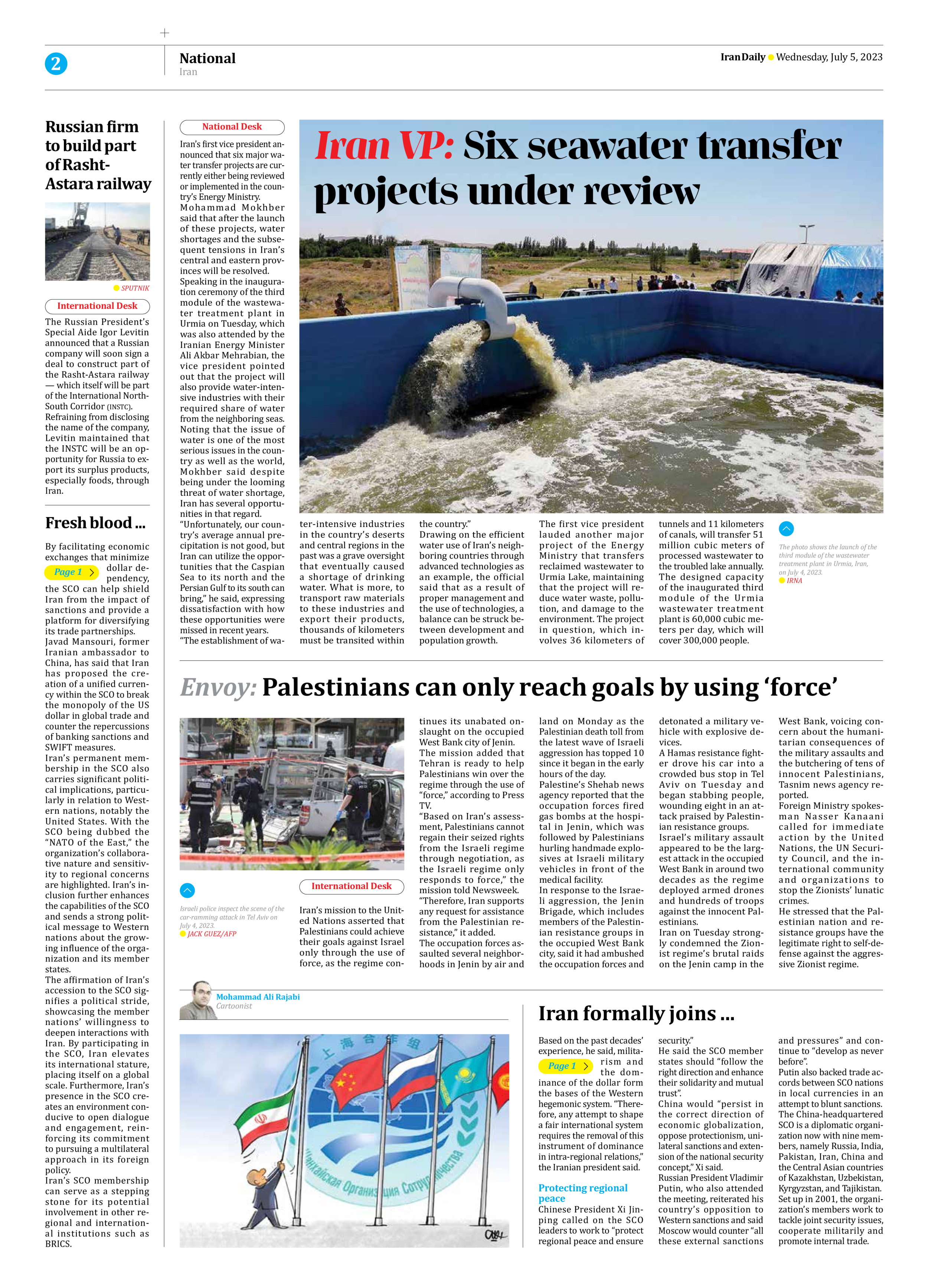
Iran VP: Six seawater transfer projects under review
Iran’s first vice president announced that six major water transfer projects are currently either being reviewed or implemented in the country’s Energy Ministry.
Mohammad Mokhber said that after the launch of these projects, water shortages and the subsequent tensions in Iran’s central and eastern provinces will be resolved.
Speaking in the inauguration ceremony of the third module of the wastewater treatment plant in Urmia on Tuesday, which was also attended by the Iranian Energy Minister Ali Akbar Mehrabian, the vice president pointed out that the project will also provide water-intensive industries with their required share of water from the neighboring seas.
Noting that the issue of water is one of the most serious issues in the country as well as the world, Mokhber said despite being under the looming threat of water shortage, Iran has several opportunities in that regard.
“Unfortunately, our country’s average annual precipitation is not good, but Iran can utilize the opportunities that the Caspian Sea to its north and the Persian Gulf to its south can bring,” he said, expressing dissatisfaction with how these opportunities were missed in recent years.
“The establishment of water-intensive industries in the country’s deserts and central regions in the past was a grave oversight that eventually caused a shortage of drinking water. What is more, to transport raw materials to these industries and export their products, thousands of kilometers must be transited within the country.”
Drawing on the efficient water use of Iran’s neighboring countries through advanced technologies as an example, the official said that as a result of proper management and the use of technologies, a balance can be struck between development and population growth.
The first vice president lauded another major project of the Energy Ministry that transfers reclaimed wastewater to Urmia Lake, maintaining that the project will reduce water waste, pollution, and damage to the environment. The project in question, which involves 36 kilometers of tunnels and 11 kilometers of canals, will transfer 51 million cubic meters of processed wastewater to the troubled lake annually.
The designed capacity of the inaugurated third module of the Urmia wastewater treatment plant is 60,000 cubic meters per day, which will cover 300,000 people.







